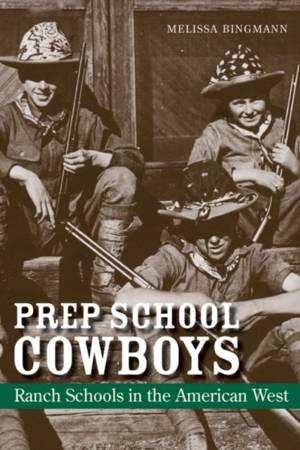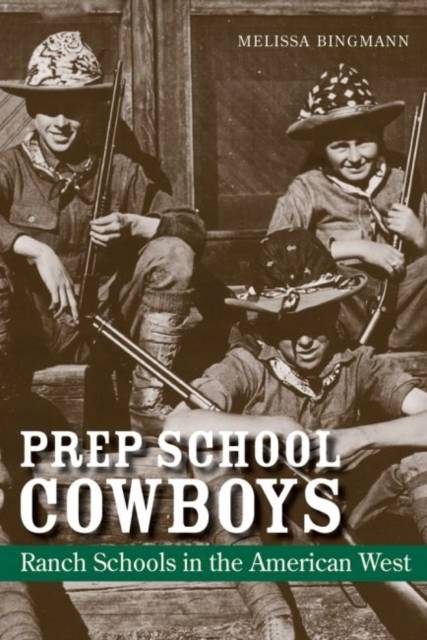
- Retrait gratuit dans votre magasin Club
- 7.000.000 titres dans notre catalogue
- Payer en toute sécurité
- Toujours un magasin près de chez vous
- Retrait gratuit dans votre magasin Club
- 7.000.0000 titres dans notre catalogue
- Payer en toute sécurité
- Toujours un magasin près de chez vous
Description
Ranch schools in Arizona, California, New Mexico, and Wyoming in the 1920s and 1930s portrayed that the West embodied the moral attributes believed to be lacking in urban America. Advocates of character education saw the courage and self-reliance of the Old West as the qualities necessary to preserve the nation through the next generation. Bingmann uses ranch schools, designed to counteract the problems of inherited wealth, as a lens through which to examine citizenship, class, gender, and region during this era while illustrating that these schools, in transmitting such values to American youth, created a network of elite private schools that gave pampered boys from the urban centers of the Atlantic Seaboard and Great Lakes region the opportunity to grow into gentlemen cowboys ready to take the reins of power in family businesses and government.
Spécifications
Parties prenantes
- Auteur(s) :
- Editeur:
Contenu
- Nombre de pages :
- 256
- Langue:
- Anglais
Caractéristiques
- EAN:
- 9780826355430
- Date de parution :
- 01-02-15
- Format:
- Livre relié
- Format numérique:
- Genaaid
- Dimensions :
- 150 mm x 231 mm
- Poids :
- 521 g

Les avis
Nous publions uniquement les avis qui respectent les conditions requises. Consultez nos conditions pour les avis.






